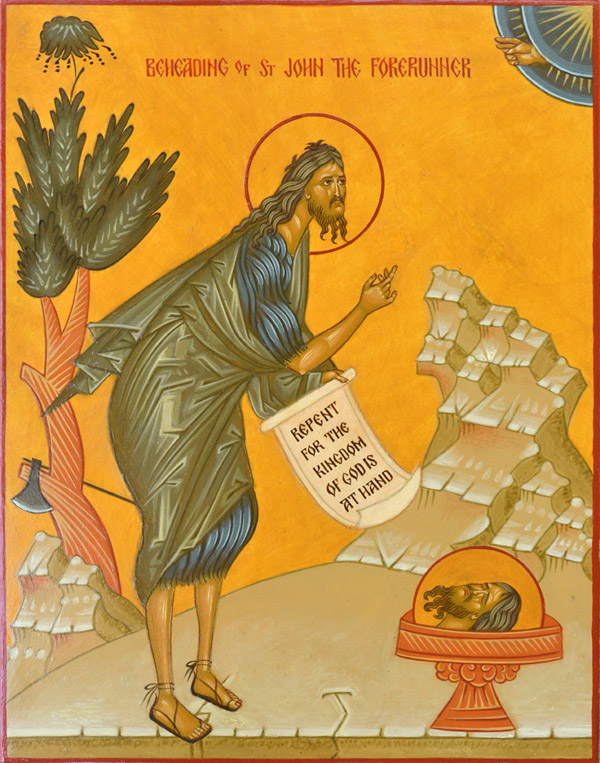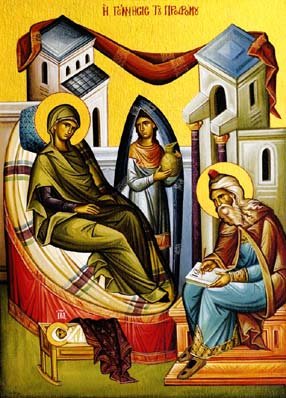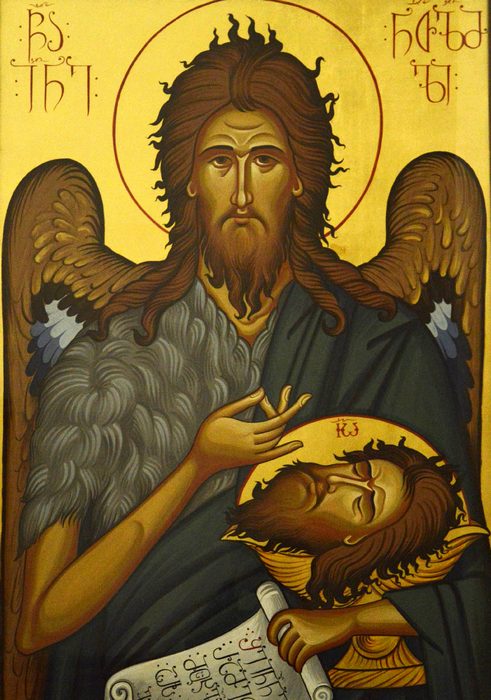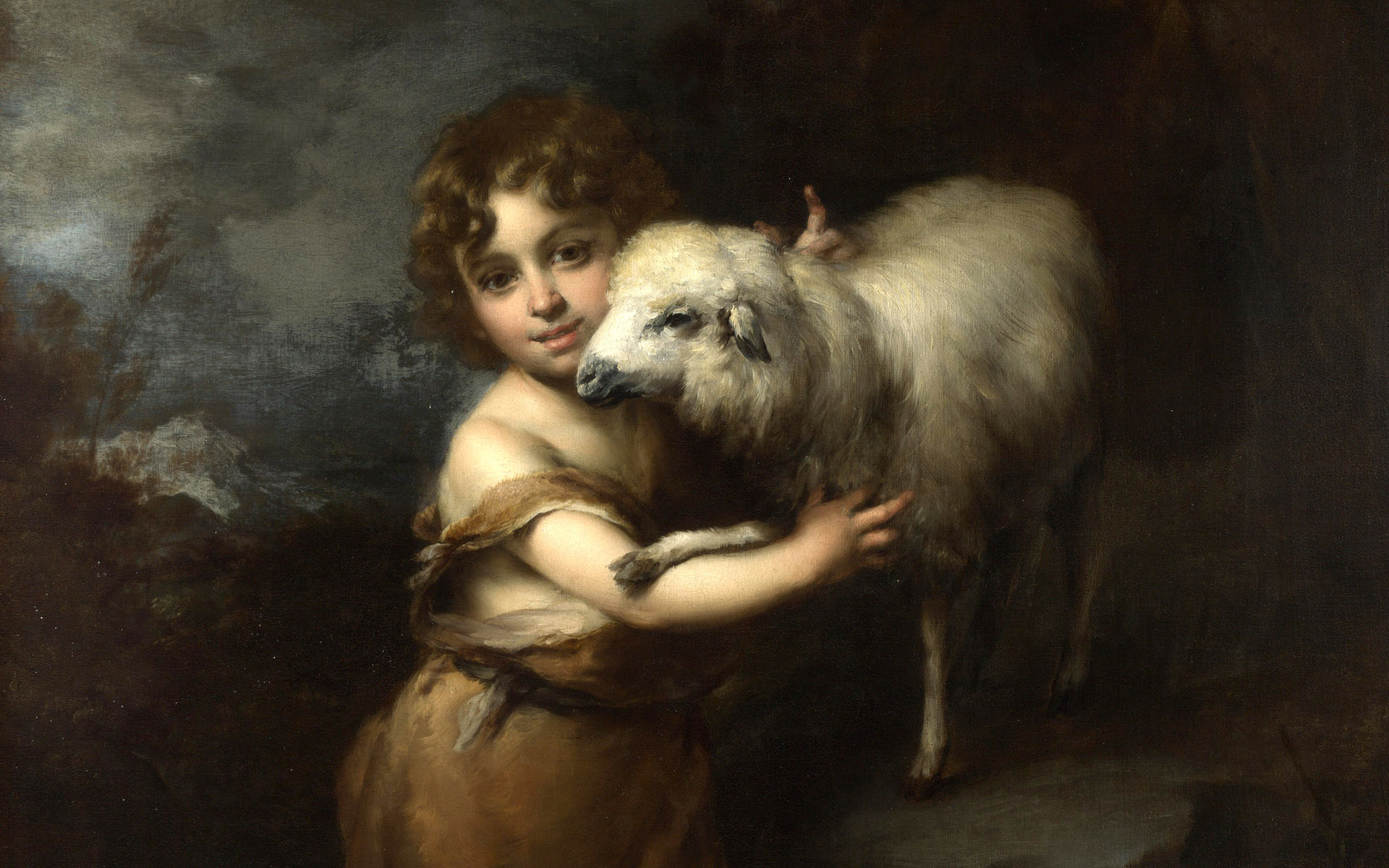 The Church recalls the event of St. John the Baptist’s death today. The following meditation helps give perspective.
The Church recalls the event of St. John the Baptist’s death today. The following meditation helps give perspective.
Today is the memorial of the Passion of John the Baptist, who was killed by the corrupt King Herod for condemning the monarch’s illicit marriage (Mk 6:17-29). For John, this was the culmination of a life of sanctity announced by an angel even before his conception (Lk 1:11-17). This divine decree presents a curious paradox. God, being all-powerful, was able to determine the course of John’s life before his birth (ST I q. 23, a. 6), but at the same time, God respected John’s free will (ST II-I q. 6, a. 4, ob. 1). How is it that God can determine what we will freely choose?
Modern thinking often seems to suppose that freedom of the will means that our choices have no cause other than the will, as if the will depends on nothing. Thomas explains instead that the will is free because it proceeds from an interior principle, namely knowledge, that allows us to act for an end which we know (ST II-I q. 6, a. 1, 4). God did not ‘force’ John the Baptist to give up his life; rather, by his grace he enlightened John the Baptist so that he would understand the good of preaching the truth even when it endangered him. As a rather crude analogy, consider how a parent can teach a child to make good choices, not by compulsion, but by education. Keep in mind also that some knowledge is abstract, as when a smoker who is trying to quit knows that his habit is bad for him, but rationalizes that away each time he smokes. John’s knowledge was entirely practical; he knew clearly that in his situation the only thing worth doing was to tell the truth. He saw clearly the disappointment inherent in every other course, and so he was free to act for the sake of the truth.
Furthermore, there is never competition between divine and human causality. Two human agents can operate on the same level, when for example two men pull on a rope. In that case, we can ask who pulls harder, and if the men are pulling in opposite directions, maybe the rope will not move at all. But God operates on a completely different level. He is the one who created humans and ropes and set all things in motion. As another crude analogy, if I write with a pencil, both I and the pencil are equally truly causes of the writing, but in very different ways. Even though I am “in charge,” I do not force the pencil to do anything unnatural. God has even more causal power, because he created pencil-materials in the first place. In the same way, God created John the Baptist as the kind of person who would give up his life for the sake of the truth. God is the first cause on which all else depends. Nothing escapes his causal power, not even the interior life of John (ST I q. 19, a. 6, ad. 3).

 THE BIRTHDAY OF THE GLORIOUS PROPHET AND FORERUNNER AND BAPTIST OF THE LORD, JOHN.
THE BIRTHDAY OF THE GLORIOUS PROPHET AND FORERUNNER AND BAPTIST OF THE LORD, JOHN. Pagan antiquity had festivals marking the winter and summer solstices. The Christian calendar absorbed these feasts, observing the birth of Christ in December on the shortest day, and that of John the Baptist in June on the longest day. From this day on, the sun slowly sinks from its zenith for six months, and begins its ascent again at Christmas. In the eyes of the Fathers, this solar rhythm is an expression of John’s words: “He must grow greater, while I grow smaller.”
Pagan antiquity had festivals marking the winter and summer solstices. The Christian calendar absorbed these feasts, observing the birth of Christ in December on the shortest day, and that of John the Baptist in June on the longest day. From this day on, the sun slowly sinks from its zenith for six months, and begins its ascent again at Christmas. In the eyes of the Fathers, this solar rhythm is an expression of John’s words: “He must grow greater, while I grow smaller.”